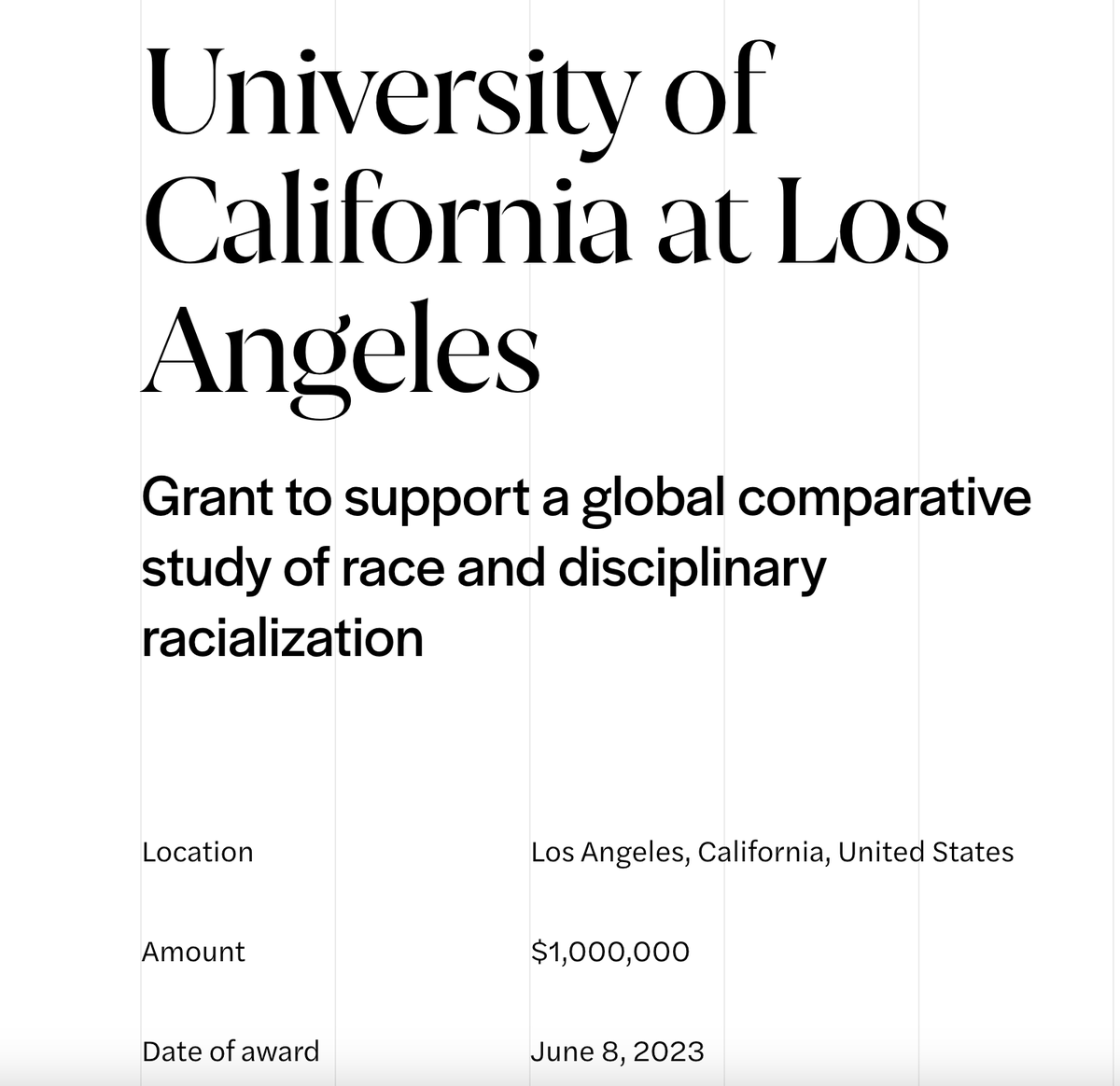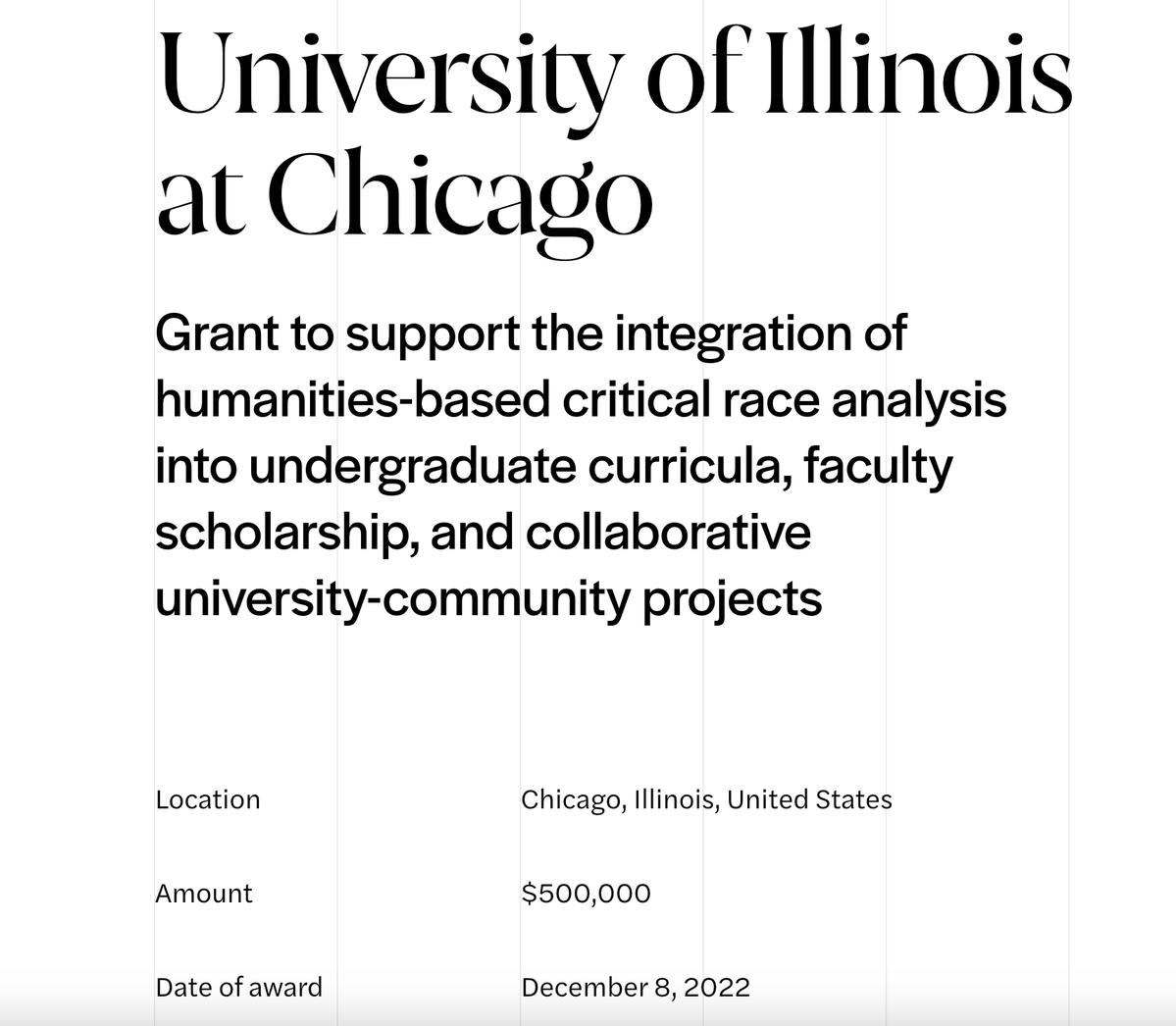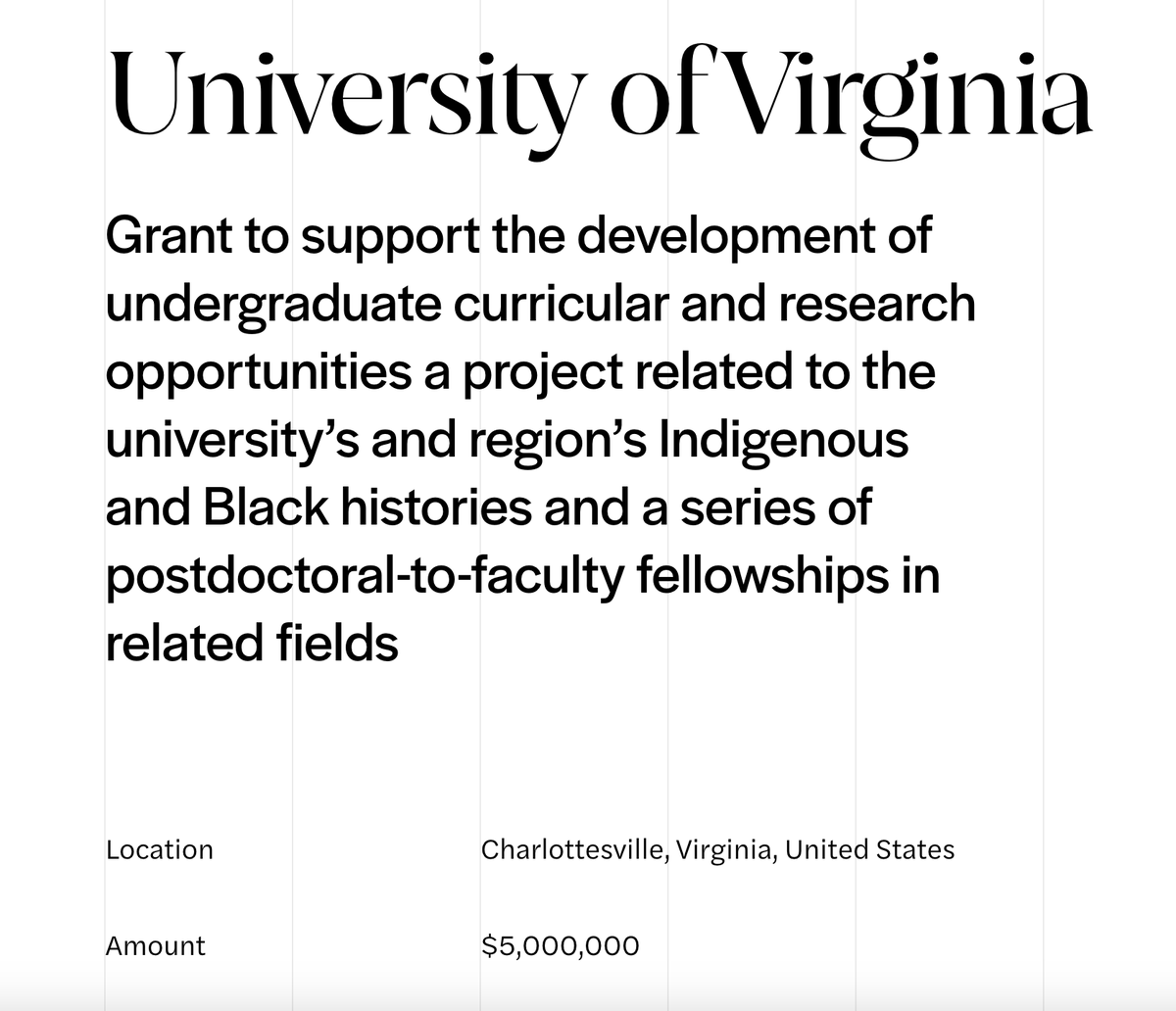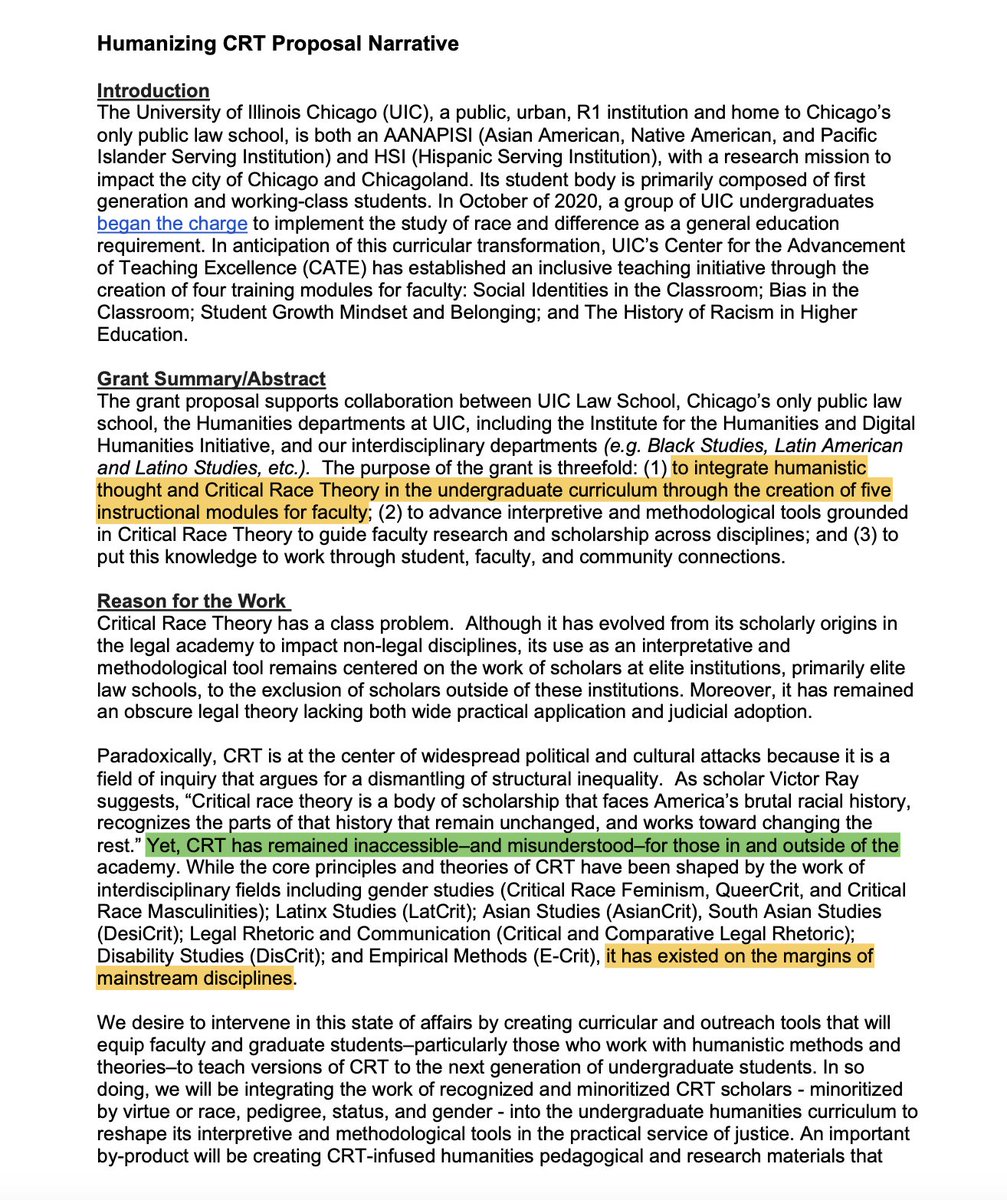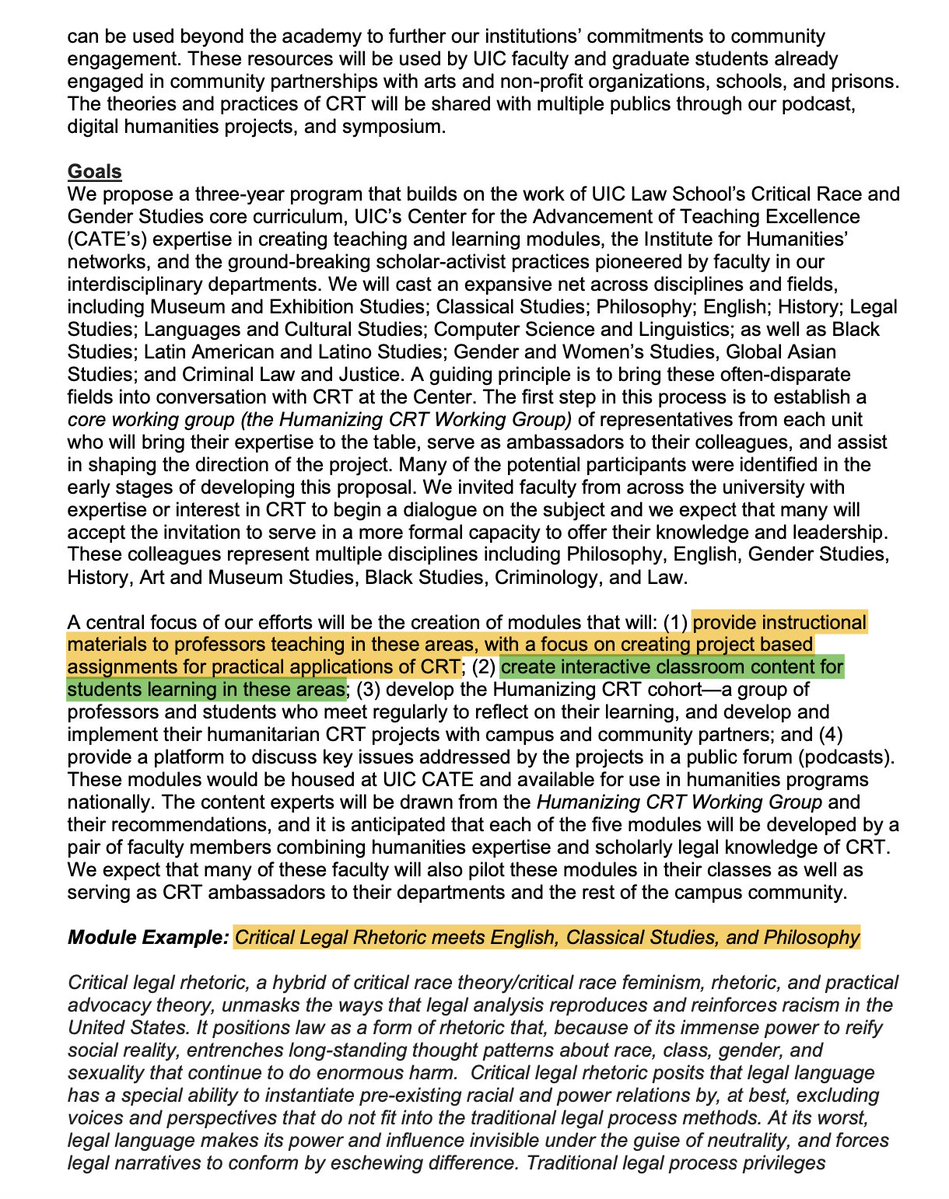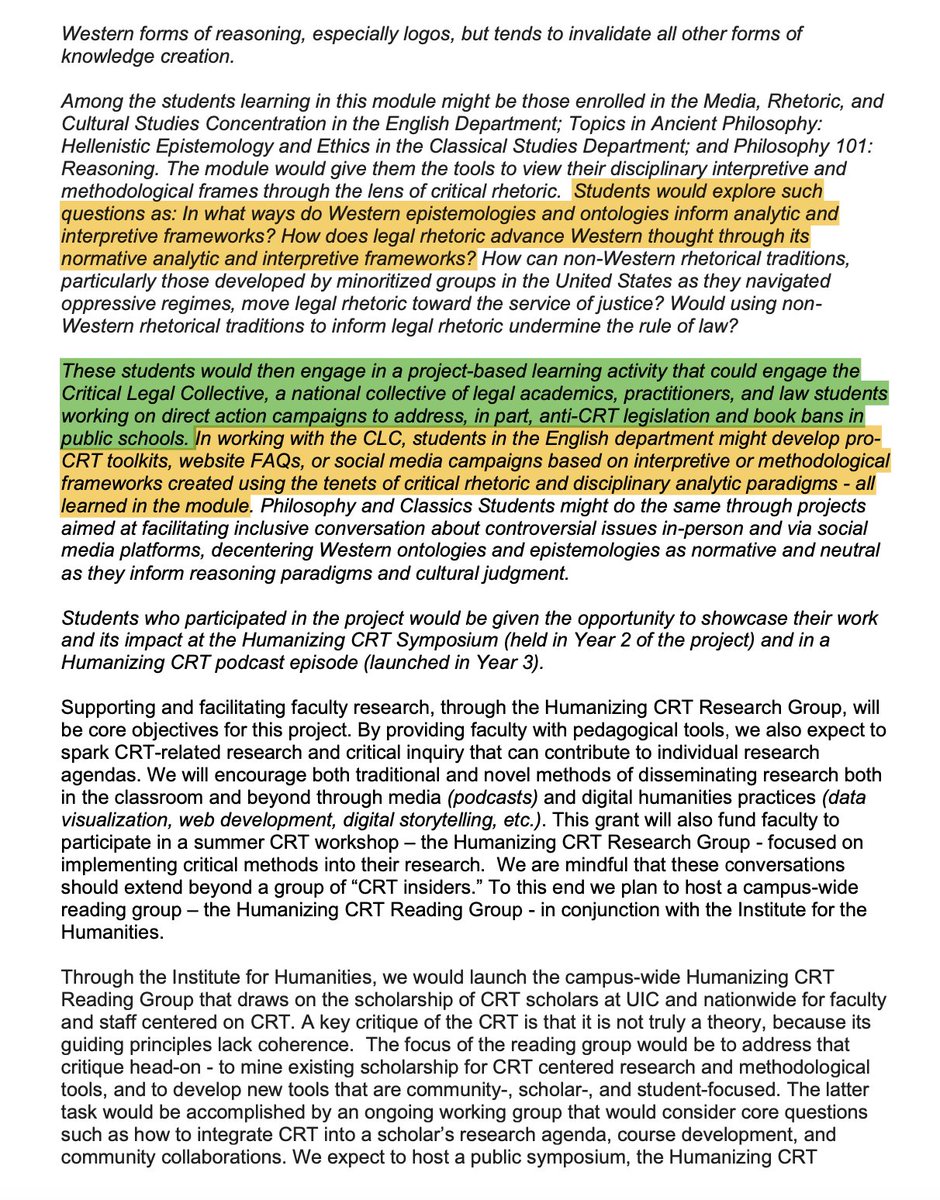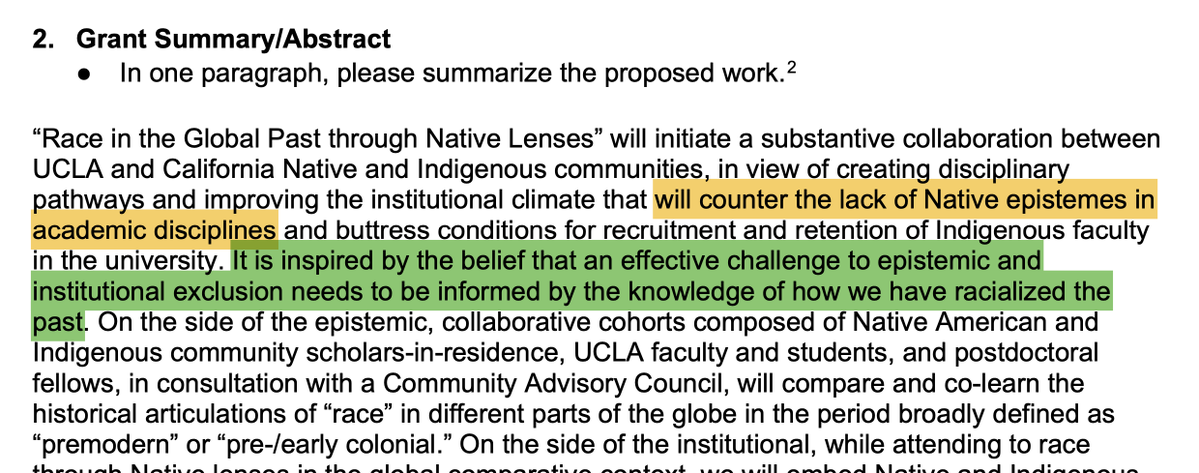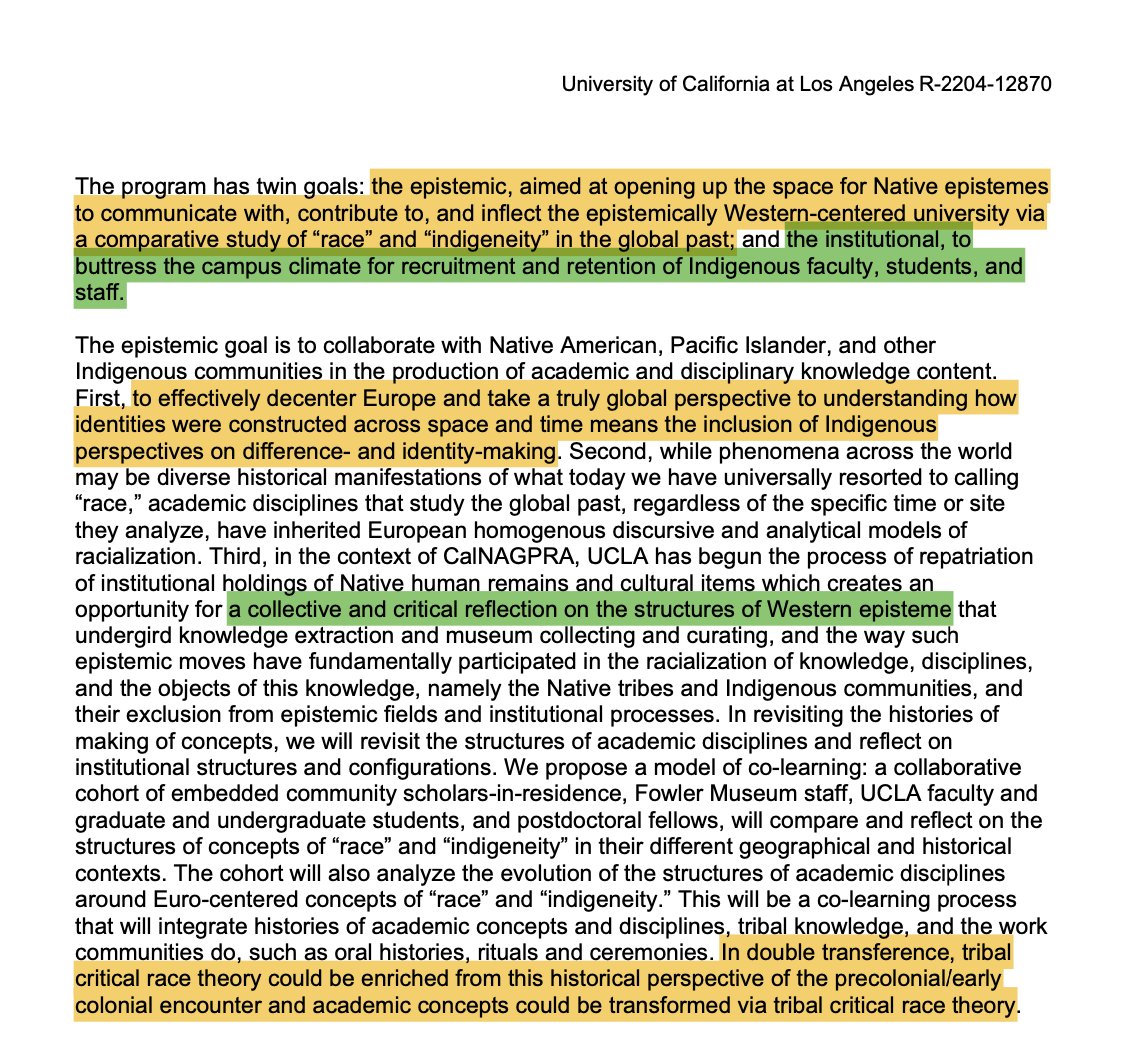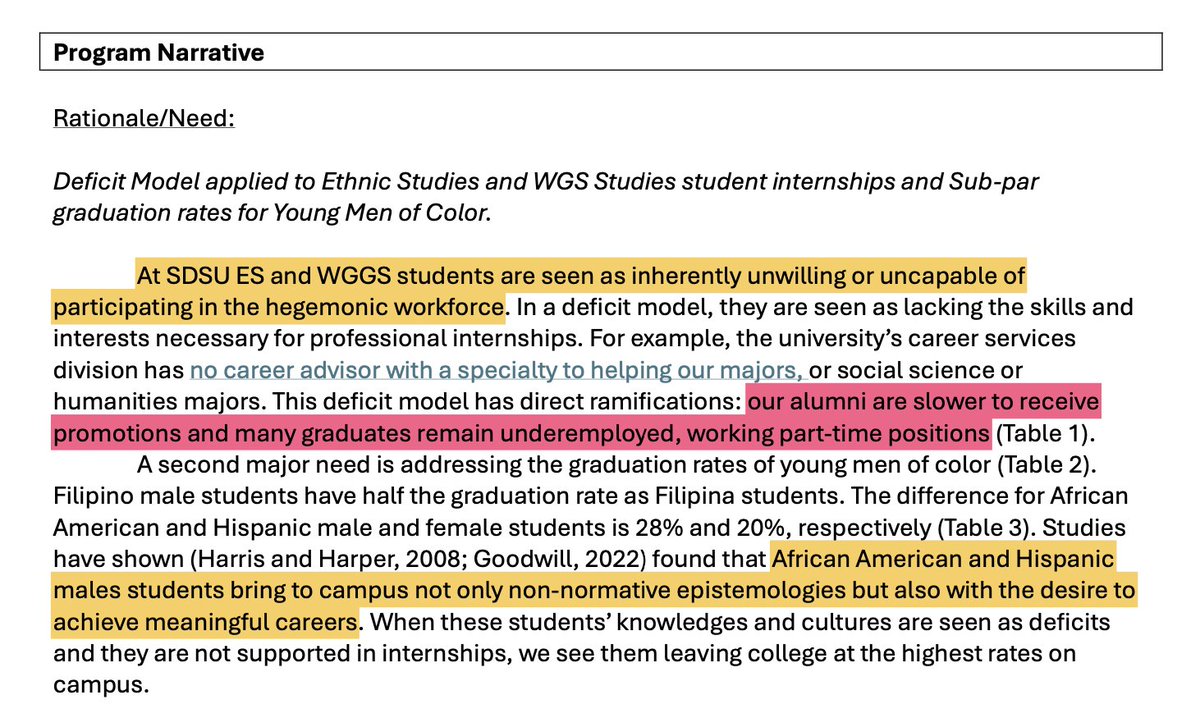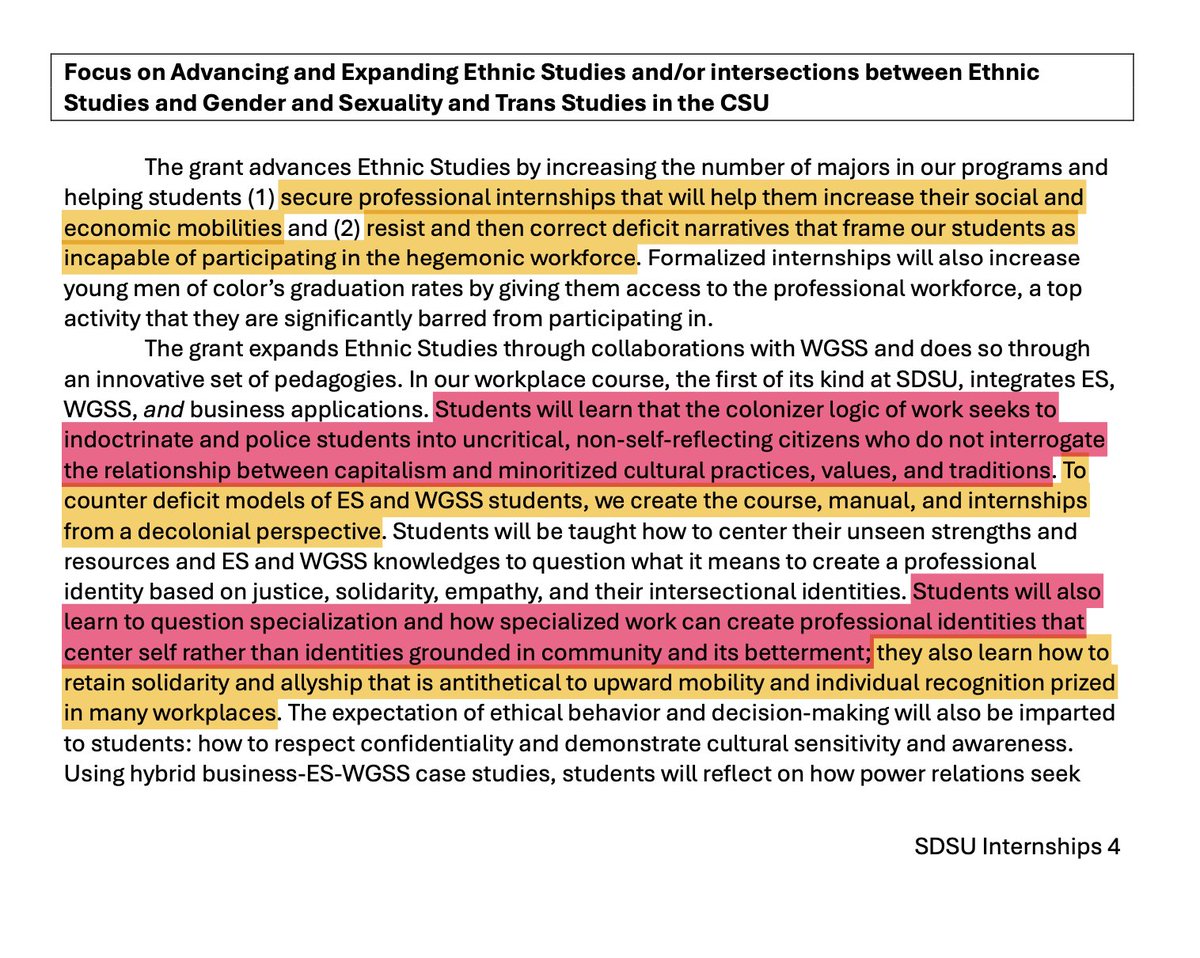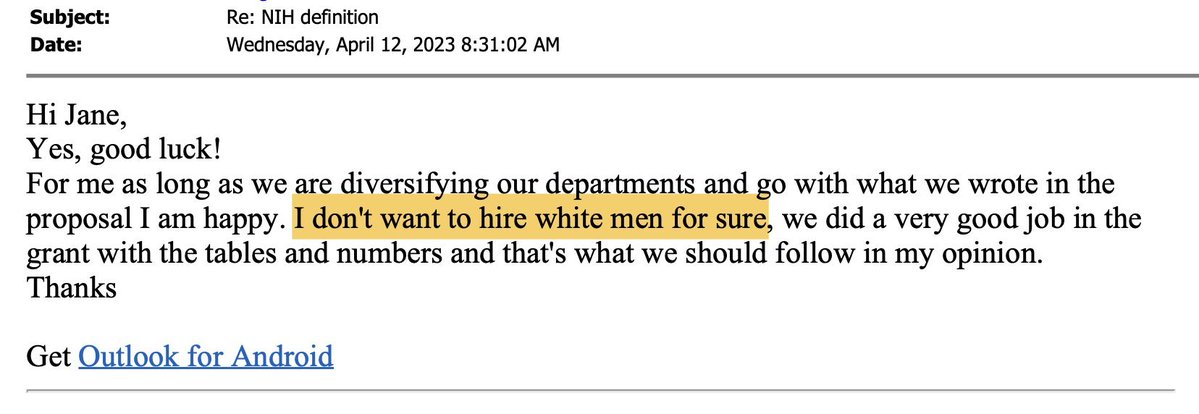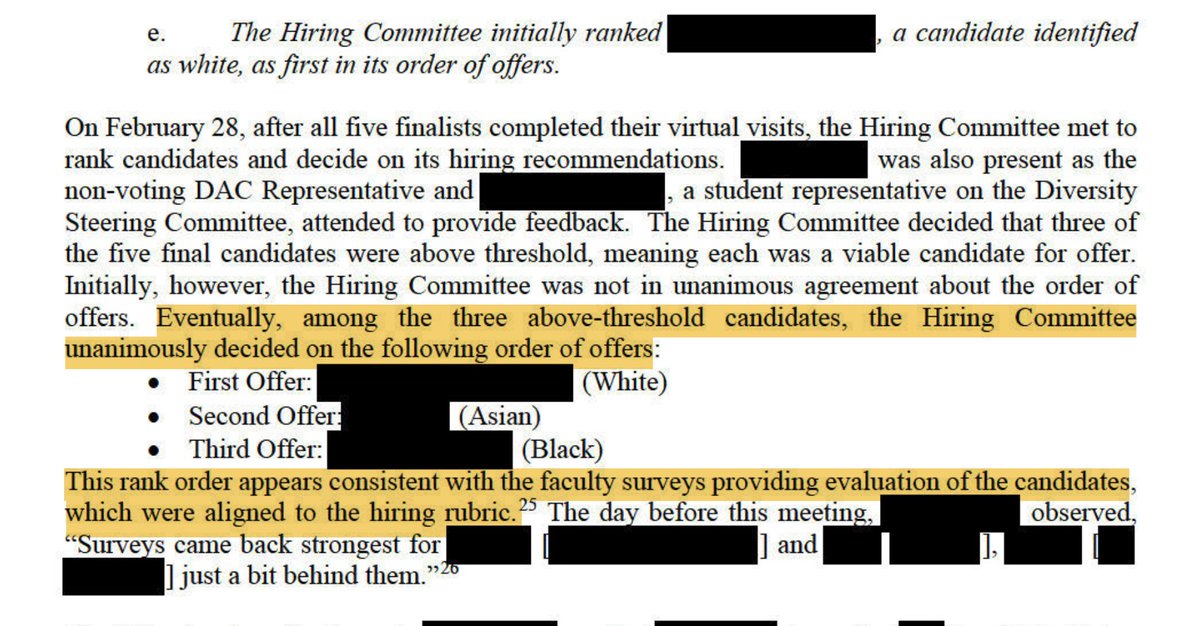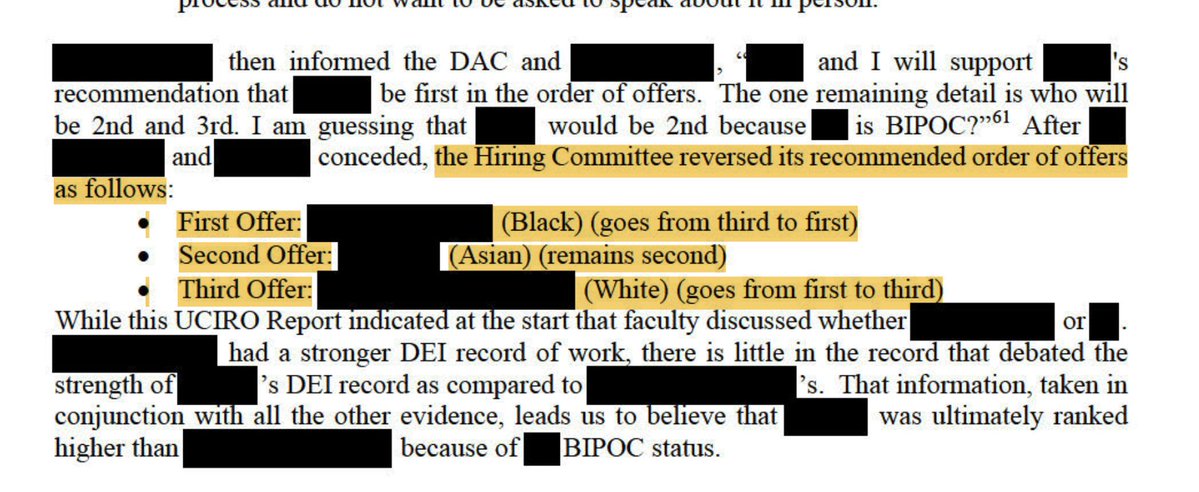At the University of Michigan, a large-scale hiring program only recruits scholars who show a “commitment to DEI.”
In practice, its a career pipeline program for scholars in activist disciplines—like “trans of color epistemologies” and “queer of color critique."
🧵🧵🧵



In practice, its a career pipeline program for scholars in activist disciplines—like “trans of color epistemologies” and “queer of color critique."
🧵🧵🧵




After the New York Times published on Michigan’s DEI bureaucracy, the university scrubbed (❗️❗️) the Collegiate Fellows Program directory from its webpage.
But I saved archived links.
Here’s what the much-celebrated initiative looks like in practice.
But I saved archived links.
Here’s what the much-celebrated initiative looks like in practice.
1⃣ A gender studies professor hired through the program studies how “transgender Latinas are racialized and sexualized in sexual economies of labor and the US nation more broadly.” 

Her book project shows “how sex working trans Latina ways of being and knowing not only defy racist-cisgenderism more broadly, but also offer potentialities beyond transnormativity and normative Latinidad.”
Now a tenure-track professor via administratrive side-door loophole.
Now a tenure-track professor via administratrive side-door loophole.

2⃣ Another fellow studies "interracial solidarities, policing, and American global power, with special attention to Latinx and Arab American radicalisms."
UM courses she's taught include "Race, Solidarity, and the Carceral State" and "Latinx Freedom Dreams."

UM courses she's taught include "Race, Solidarity, and the Carceral State" and "Latinx Freedom Dreams."


3⃣Another, now in the philosophy department, studies the “the epistemic exclusion of diverse practitioners within the academy.”
Her most recent article “conceptualiz[es] the genealogy of structural anti-Blackness.”

Her most recent article “conceptualiz[es] the genealogy of structural anti-Blackness.”


4⃣Another former-fellow-now-tenure-track-professor studies film as a “medium for racial formation” informed by “women, queer, and trans of color epistemologies” as well as “decolonial thought.” 



5⃣was "trained in literary and critical theory”
6⃣examines the "white supremacist" roots of Southern wife beating laws
7⃣offers “antiracist and queer revisions" to "Aristotle's ancient theory of rhetorical ethos”
8⃣specializes in “critical translation theory"



6⃣examines the "white supremacist" roots of Southern wife beating laws
7⃣offers “antiracist and queer revisions" to "Aristotle's ancient theory of rhetorical ethos”
8⃣specializes in “critical translation theory"




9⃣Another, a scholar of modern France, “broadly focus on the intersection of race and religion (or religion as race).” 

That’s a bit vague. In practice, he too is laser-focused on intersectional analysis.
His edited collection, Queer Jews, Queer Muslims, aims at “triangulating the Jewish-Muslim dad with a third variable: queerness.”

His edited collection, Queer Jews, Queer Muslims, aims at “triangulating the Jewish-Muslim dad with a third variable: queerness.”


🔟 Another, in her course on “Black Feminism(s),” prompts students to ask “How have Black women pushed back against and attempted to reshape traditional, Eurocentric, ‘white feminist’ politics?” 



1⃣1⃣An anthropologist recruit is currently exploring how debates over vaccines “are intimately tied to broader questions about gender, race, and nation.”
Drawing from “critical refugee studies.”

Drawing from “critical refugee studies.”


Walker illustrates how these faculty recruitment have a downstream effect on culture.
When Quaker Oats scrapped “Aunt Jemima,” Walker was interviewed by NPR as an expert, pushing the company to bring about “structural change.”

When Quaker Oats scrapped “Aunt Jemima,” Walker was interviewed by NPR as an expert, pushing the company to bring about “structural change.”


These are just a few examples. The list goes on. A few takeaways are in order.
1) This program give the chosen few a side-door onto the faculty. It works like this:
➡️Fellowship applicants are screened by the DEI office and hired as postdocs.
➡️They are then guaranteed tenure-track positions, bypassing the normal rigors of a competitive faculty search.
➡️Fellowship applicants are screened by the DEI office and hired as postdocs.
➡️They are then guaranteed tenure-track positions, bypassing the normal rigors of a competitive faculty search.
2) As a whole, the program has a massive—and distorting—effect on the university’s research agenda.
Of the 31 former fellow now teaching in non-STEM disciplines, all but one specialize in issues of identity—race, gender, sexuality, and so on.
Of the 31 former fellow now teaching in non-STEM disciplines, all but one specialize in issues of identity—race, gender, sexuality, and so on.
Fourteen of them employ what can be described as critical theory, including:
➡️“critical race theory"
➡️“critical translation studies"
➡️“critical food studies"
➡️“queer of color critique"
➡️“trans of color epistemologies,"
and various forms of systemic oppression.
➡️“critical race theory"
➡️“critical translation studies"
➡️“critical food studies"
➡️“queer of color critique"
➡️“trans of color epistemologies,"
and various forms of systemic oppression.
3/ Amazingly, according to DEI proponents, the Collegiate Fellows Program stands out as an exemplar.
A faculty petition circulated last week, which opposes any attempt to reform DEI by the Board of Regents, cites it as an example of DEI done right.
A faculty petition circulated last week, which opposes any attempt to reform DEI by the Board of Regents, cites it as an example of DEI done right.

4/ For years, critics have argued that DEI evaluations—through diversity statements, or any other tool used to assess a scholars’ “commitment to DEI”—serve as an ideological litmus test, raising serious constitutional issues at a state university.
The Collegiate Fellows Program lends credence to this argument.
The Collegiate Fellows Program lends credence to this argument.
6/ But the ideological gloss might well just be a side-product.
In records I acquired, UM’s chief diversity officer boasted that screening faculty for their “commitment to DEI” serves as a near perfect proxy for racial preferences.
In records I acquired, UM’s chief diversity officer boasted that screening faculty for their “commitment to DEI” serves as a near perfect proxy for racial preferences.
https://x.com/JohnDSailer/status/1861474527026315538
In other words, UM sought to create a career pipeline for underrepresented minority scholars — and it ended up creating a scholar-activist pipeline.
Demographic diversity via viewpoint conformity.
Demographic diversity via viewpoint conformity.
I suspect I’ll get comments that raise the question so I’ll go ahead and say: Faculty should be allowed to espouse controversial views. They should be allowed to teach controversial classes. These faculty should not be fired.
But that’s not the real issue. This is the issue:
Universities, foundations, and federal agencies have funded a career path for those who hold an activist vision for higher education. This is a bad thing, and there’s no reason to continue funding the scholar-activist pipeline.
Universities, foundations, and federal agencies have funded a career path for those who hold an activist vision for higher education. This is a bad thing, and there’s no reason to continue funding the scholar-activist pipeline.
Of interest to @feelsdesperate @wesyang @robbystarbuck @realchrisrufo @ProfDBernstein @PsychRabble @MichaelRegnier @aaronsibarium @TheRabbitHole84 @fentasyl @eyeslasho @elonmusk
• • •
Missing some Tweet in this thread? You can try to
force a refresh




